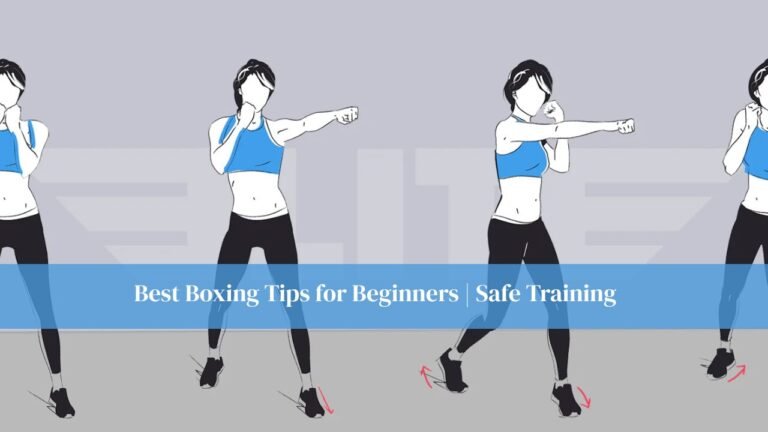In the world of combat sports, the journey from a novice with potential to a skilled, confident boxer depends heavily on the guidance you receive. The right boxing trainer is not just an instructor; they are a mentor, strategist, motivator, and often a source of inspiration. A great trainer will help you refine your skills, push your limits, and ensure you progress toward your ultimate goals. Without that right mentorship, you might find yourself plateauing, missing key techniques, or struggling to make your mark in the ring. This comprehensive guide explores in detail how to find the perfect boxing trainer, aligning with proven strategies and real-world advice that have helped countless athletes succeed.
Understanding Your Goals Before Choosing a Trainer
The foundation of your search for a trainer lies in clearly defining your goals. Before you even set foot in a gym or make inquiries, take a moment to reflect on what you hope to achieve through boxing. Are you seeking improved fitness, a competitive career, or simply a way to defend yourself? Understanding this will guide you toward a trainer whose expertise aligns with your objectives.
If your goal is fitness, your ideal trainer should focus on boxing as a means of improving cardiovascular health, enhancing core strength, and helping you burn calories. They will design workouts that are intense yet sustainable, incorporating both boxing drills and conditioning exercises to keep you motivated and engaged. On the other hand, if your sights are set on competition whether amateur or professional your search should lead you to a trainer with a history of producing successful fighters. These trainers will not just teach you how to throw a punch; they will develop your ring IQ, sharpen your defensive skills, and create tailored fight strategies to give you an edge.
For those whose main priority is self-defense, the approach will differ again. You may not require the grueling regimens of a competitive fighter, but you still need a trainer who can teach you practical boxing techniques that work in real-life scenarios. The right coach will focus on situational awareness, quick reflexes, and the ability to defend yourself effectively without necessarily training for the ring.
Research and Recommendations That Lead to Quality Coaches
Once your goals are clear, the next step is to research potential trainers. The digital age has made this process far easier, with countless resources available at your fingertips. Begin locally by searching online for boxing trainers or gyms in your area. Phrases like “boxing trainers near me” or “best boxing gyms in [your city]” can yield valuable leads. Local directories, both online and in print, are another great resource, often listing verified businesses and trainers with ratings and reviews.
Personal recommendations remain one of the most powerful ways to find a trustworthy coach. Speak with friends, family members, or colleagues who are active in fitness or combat sports. They can share their firsthand experiences and point you toward trainers who have a reputation for professionalism and skill. If you already attend a gym, don’t hesitate to ask fellow members for suggestions. Often, the best leads come from casual conversations with people who have trained with a coach themselves.
Online communities are also goldmines for recommendations. Forums like r/amateur_boxing or r/boxing on Reddit, as well as dedicated boxing discussion boards, are full of athletes eager to share advice. When posting a request for trainer recommendations, be specific about your location, training goals, and availability. This helps others provide relevant, actionable suggestions.
Social media can play a significant role as well. Many boxing and fitness groups on Facebook actively share trainer recommendations, gym reviews, and even post videos of training sessions. By joining these groups, you gain access to a network of enthusiasts and professionals who can guide you toward reputable coaches.
Review platforms such as Yelp, Google Reviews, and specialized boxing review sites allow you to see patterns in feedback. Pay attention not just to the star rating but to detailed comments about a trainer’s teaching style, consistency, and ability to personalize sessions for different skill levels.
Evaluating Credentials and Experience With Care
A boxing trainer’s credentials and experience are critical indicators of their expertise. Formal certifications from reputable organizations such as USA Boxing or the National Academy of Sports Medicine reflect a trainer’s commitment to maintaining high coaching standards. These certifications also demonstrate that the trainer has been educated in safe, effective training practices.
However, experience often speaks louder than paper qualifications. A trainer who has produced competitive fighters or who has extensive personal experience in the ring — brings a wealth of practical knowledge that cannot be replicated by theory alone. This includes the ability to read an opponent, make in-the-moment tactical adjustments, and instill the mental toughness necessary to thrive in boxing.
When evaluating a trainer, don’t be afraid to ask direct questions about their background. Have they trained champions or competitive fighters? What kind of results have their students achieved? How do they adapt their methods for beginners versus seasoned athletes?
Observing a trainer in action can also be revealing. During a trial session, note how they communicate instructions. Do they provide constructive feedback and adjust their approach to suit your learning style? An experienced trainer knows when to push and when to encourage, finding the right balance to help you progress without burning out.
Considering Location and Accessibility for Consistency
No matter how skilled a trainer is, if their gym is too far away or inconvenient to reach, your training consistency will suffer. Choosing a location close to home, work, or school increases the likelihood that you will stick to your training schedule. Consistency is key in boxing — missing sessions regularly can slow your progress and undermine your fitness gains.
Proximity also saves time and money. Shorter travel times mean more energy and focus for your workouts, while reduced transportation costs can free up resources for better equipment or additional training sessions.
Another often overlooked factor is safety. If you plan to train during early mornings or late evenings, a nearby gym in a safe area is a smart choice. This ensures you can attend every session without worrying about unsafe travel conditions.
Finally, training in a local gym can help you build a support network. Familiar faces and a sense of community make training more enjoyable and keep you motivated. When your trainer, fellow boxers, and even gym staff know you personally, they are more likely to encourage and support your progress.
Making the Final Choice and Building a Strong Partnership
After evaluating your options, select a trainer who meets your criteria for skills, credentials, location, and personal connection. Boxing is not just a physical sport it requires mental resilience, discipline, and trust between athlete and coach. The right trainer will inspire confidence, push you beyond your comfort zone, and help you unlock your full potential.
View your trainer as more than just an instructor. They are a partner in your journey, someone who will celebrate your victories, analyze your losses, and constantly seek ways to improve your performance. A great trainer doesn’t just prepare you for fights; they prepare you for life, instilling values like perseverance, discipline, and self-belief.
Conclusion
Finding the perfect boxing trainer is a journey in itself that requires self-awareness, thorough research, and careful evaluation. The best trainer for you is someone who understands your goals, brings proven expertise to the table, and is committed to helping you succeed both inside and outside the ring. When you make the right choice, you are not only investing in your boxing career but also in your personal growth, health, and confidence.
FAQs
How much does boxing training typically cost?
The cost of boxing training can vary widely, but expect to pay anywhere from $30 to $100 per session, depending on the trainer’s experience and location.
What qualifications should I look for in a boxing trainer?
Look for trainers with certifications from recognized boxing organizations and a history of training successful fighters.
How often should I train with a boxing trainer?
The frequency of training sessions can vary, but most boxers train with a coach at least 2-3 times a week.
Related Post:




